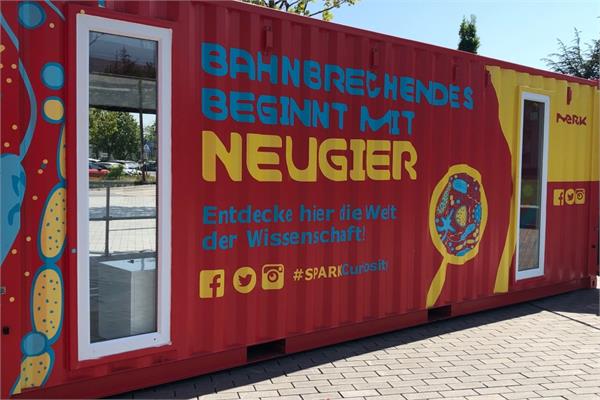
Merck’s Curiosity Cube will allow students to have access to hands-on science and inspire curiosity.
Merck has recently presented its 2022 Curiosity Cube® in Europe and North America. The mobile science lab is intended to provide children with better tool to enjoy Science, Technology, Engineering and Math (STEM).
“Our Life Science purpose is to positively impact life and health with science. To continue to advance scientific progress, we need to inspire school-age children to start experiencing the possibilities of science at an early age. With our Curiosity Cube®, we're making science interactive and fun, building confidence and capabilities for the next generation of scientists,” stated Matthias Heinzel, member of the Executive Board of Merck and CEO of Life Science, the sector involved in programmes to promote scientific education.
Job opportunities requiring STEM skills are increasing all over the world: in the next decade, STEM careers are expected to grow by 25% in Europe and twice as fast as all other careers in the U.S.A. Unfortunately, only 35% of STEM students in higher education globally are women and students at lower-resourced schools often lack access to hands-on science learning.
Merck understands the urgent need to expand the pipeline of future scientists and, believing that scientific discoveries begin with curiosity, it is dedicated to inspire curiosity by increasing access to hands-on science for students. The Curiosity Cube – a retrofitted shipping container that features hands-on science experiments designed to spark student interest in STEM careers – will hold more than 200 events at schools and public spaces in Europe and North America, reaching around 50,000 students.
Students will also be able to use robots, digital microscopes and other scientific instruments to learn about the microbiome through three interactive experiments.
The Curiosity Cube will be set up in several cities in Belgium, France, Germany, Ireland, Liechtenstein, the Netherlands, Spain, Switzerland and the U.K. In North America, the mobile science lab will hold nearly 100 events in communities across Austin, Boston, Cleveland, Houston, Milwaukee, San Diego, Seattle, St. Louis and Toronto.